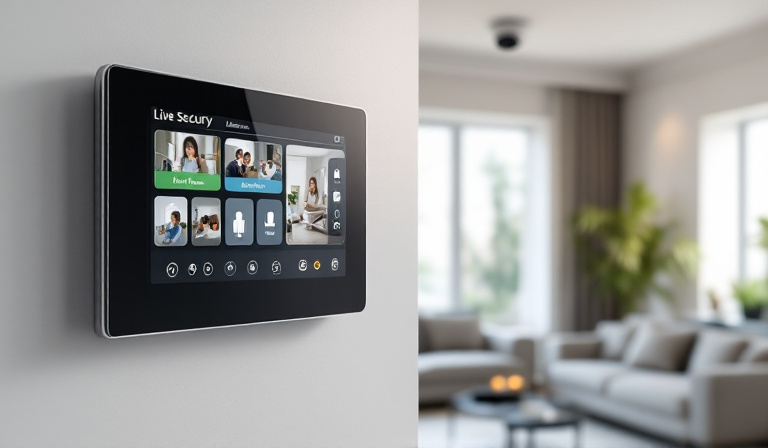
In an increasingly connected world, ensuring the safety of our homes and businesses has become a priority for many. Selecting the right security system involves understanding your specific needs and the available technologies. This guide takes a personal approach to help you find the best-fit security solution.
Understanding Your Security Needs
Before diving into the vast array of security systems available, it's crucial to assess what you need. Every property is unique, and so are the security challenges it presents.
- Identify Vulnerable Areas: Conduct a thorough walk-through of your property. Look for areas that might be easily accessible or hidden from view, such as back doors, windows, or basement entrances.
- Consider Your Lifestyle: Do you travel often? Do you have pets that move around your property? Your lifestyle will significantly influence the type of security system that suits you best.
- Evaluate Risks: Consider the crime rates in your area and any past security incidents. This information can help determine the level of security you need.
Types of Security Systems
Once you've assessed your needs, it's time to explore the different types of security systems available. Understanding these options will help you make an informed decision.
- Monitored Systems: These systems alert a monitoring center when a security breach is detected. The center then contacts the appropriate authorities. This option provides peace of mind, but typically involves a monthly fee.
- Unmonitored Systems: These systems trigger an alarm to alert you and nearby individuals of a breach. They are typically more affordable but rely on someone nearby to respond to the alert.
- Wireless Systems: Easy to install and flexible, wireless systems use Wi-Fi or cellular signals to communicate. They're ideal for renters or those wanting to avoid extensive wiring.
- Wired Systems: These require professional installation and are often more reliable, as they are less susceptible to interference. They are a good choice for long-term homeowners.
- Smart Systems: Integrated with smart home technology, these systems offer remote access and control via smartphones or computers. They provide convenience and real-time updates.
Features to Consider
When choosing a security system, it's essential to consider specific features that align with your needs and enhance your property's safety.
- Surveillance Cameras: These are crucial for monitoring activity around your property. Look for cameras with high resolution, night vision, and a wide field of view.
- Motion Sensors: These devices detect movement in specific areas and are particularly useful in less frequented parts of your home, like basements or garages.
- Door and Window Sensors: These sensors alert you when a door or window is opened unexpectedly.
- Environmental Sensors: Consider adding sensors that detect smoke, fire, carbon monoxide, or flooding for a comprehensive safety solution.
- Two-Way Communication: Some systems allow you to communicate directly with whoever is at your door, adding an extra layer of security.
Budget Considerations
Security systems can range from affordable to luxurious, and understanding your budget is essential. Here’s how to budget effectively for your security needs:
- Initial Costs: Consider the upfront costs of purchasing equipment and installation. Wireless systems might be cheaper to install, whereas wired systems might require professional help.
- Monthly Fees: Monitored systems usually come with a monthly service fee. Evaluate whether this fits within your budget and whether the benefits justify the cost.
- Additional Features: Extra features like home automation or advanced surveillance can increase the cost. Prioritize features that are essential to your security needs.
Installation: DIY or Professional?
Deciding between a DIY installation and hiring a professional can affect both the cost and performance of your security system.
- DIY Installation: Many modern systems are designed for easy self-installation, which can save money and time. They’re ideal for tech-savvy individuals or those with a straightforward security setup.
- Professional Installation: For more complex or wired systems, professional installation ensures everything is set up correctly and functioning optimally. This option can be more costly but offers peace of mind.
Maintaining Your Security System
Once your system is in place, regular maintenance is crucial to ensure it continues to function correctly.
- Regular Testing: Periodically test your system to ensure all components are working as expected.
- Software Updates: Keep your system's software up to date to protect against potential vulnerabilities.
- Battery Checks: Replace batteries in wireless systems regularly to avoid lapses in protection.
Conclusion
Choosing the right security system is a personal decision that depends on various factors, including your specific needs, lifestyle, and budget. By understanding the different types of systems available and considering the features that matter most to you, you can find a security solution that offers peace of mind and protection for your home or business. Remember, a well-thought-out security system is an investment in safety and peace of mind.

